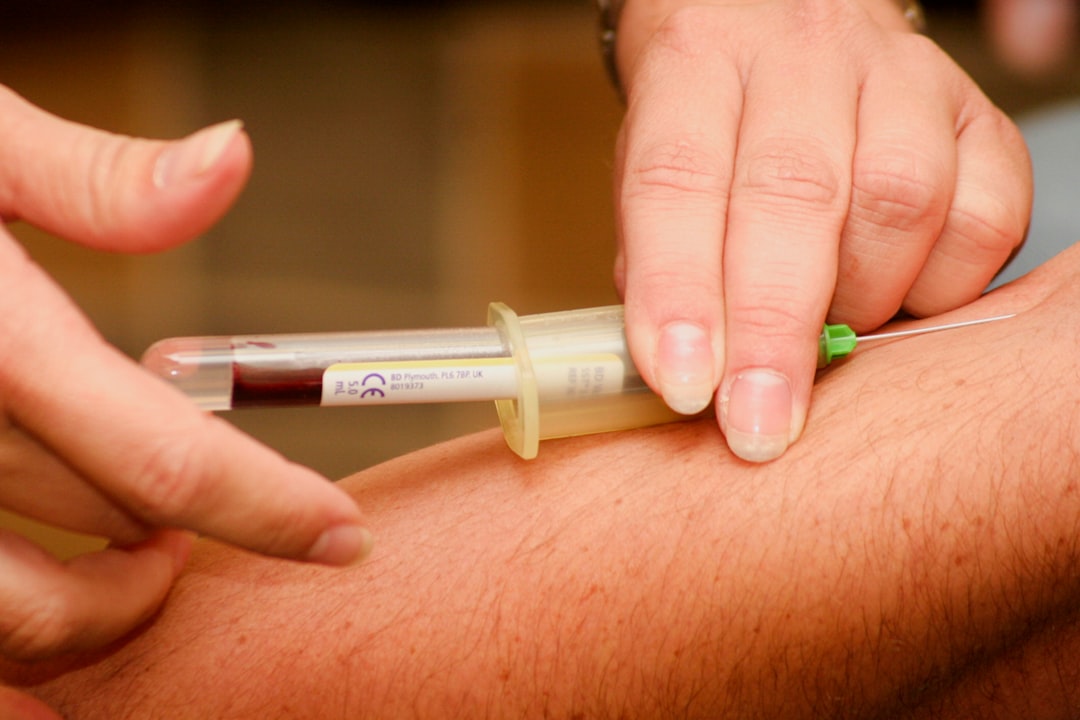Phlebotomist Kaitiki Toto
Phlebotomists collect blood and samples from patients for laboratory testing or for blood banks.
Phlebotomists need to be registered with the Medical Sciences Council of New Zealand.
Phlebotomists may do some or all of the following:
- take blood and other samples such as plasma and skin
- label samples and collect patient data
- input data into computers
- reassure patients and blood donors
- look after patients if they have an adverse reaction
- travel to collect samples from patients
- test patients for allergies
- maintain machinery and order supplies
- attend blood donation events.
Donor Technician
Specimen Services Technician
Physical Requirements
Phlebotomists need to be reasonably fit and healthy, as they spend long periods standing. They also need to have good hand-eye co-ordination for finding veins when taking blood samples.
Useful Experience
Useful experience for phlebotomists includes:
- customer service
- training and working as a nurse or health care assistant
- work in laboratories, particularly in the specimen reception area
- work in hospitals, particularly in medical laboratories.
Personal Qualities
Phlebotomists need to be:
- responsible
- tolerant, patient and gentle
- able to inspire confidence in patients and put them at ease
- practical, and able to pay attention to detail
- able to follow procedures and instructions
- organised, with basic computer skills
- good communicators with good listening skills.
Phlebotomists should not be squeamish, as their work involves body samples.
Skills
Phlebotomists need to have knowledge of:
- the anatomy of the arm, and blood-taking techniques
- how to take a variety of other bodily samples
- health and safety requirements, and hygiene
Conditions
Phlebotomists:
- often do shift work and may work weekends
- are likely to work part time, in the mornings, if they work for community medical laboratories
- work in hospital laboratories or community medical laboratories, donor centres or mobile collection units
- may travel locally to take samples at doctors' surgeries, hospitals, rest homes, patients' homes and workplaces.
Subject Recommendations
There are no specific secondary education requirements to become a phlebotomist. However, biology, chemistry, health education, physics and maths are useful.
Related Courses
Phlebotomists can earn around $52K-$82K per year.
Pay for phlebotomists varies depending on experience.
Phlebotomists working for Te Whatu Ora Health NZ (former DHBs)
- Qualified, registered phlebotomists usually earn $52000 to $82,000 a year.
Sources: Auckland Region District Health Boards/ PSA, 'Allied, Public Health, Scientific & Technical Multi Employer Collective Agreement, Expires 30 June 2023'; and 'Rest of New Zealand 'Allied, Public Health, Scientific and Technical Multi Employer Collective Agreement, expires 30 June 2023.'
- Te Whatu Ora website - Auckland Region Allied, Public Health, Scientific and Technical Multi Employer Collective Agreement (PDF - 1.46MB)
- Te Whatu Ora website - Rest of New Zealand 'Allied, Public Health, Scientific and Technical Multi Employer Collective Agreement (PDF - 1.88MB)
- PAYE.net.nz website - use this calculator to convert pay and salary information
Experienced phlebotomists may progress into managerial positions.
With further training, they may become medical laboratory scientists.
Phlebotomists may specialise in the roles of:
- Donor Technician
- Donor technicians collect blood and plasma from blood donors.
- Specimen Services Technician
- Specimen services technicians take blood, urine and tissue from patients to test in a laboratory. They also perform tests and procedures on patients.
Years Of Training
2 years of training required.To become a phlebotomist you need to:
- work as a trainee phlebotomist in an approved laboratory for two years
- gain the Qualified Phlebotomy Technician Certificate, Qualified Donor Technician Certificate or Qualified Specimen Services Technician Certificate from the New Zealand Institute of Medical Laboratory Science
- hold a full driver's licence.
You also need to be registered with the Medical Sciences Council of New Zealand.
The Vulnerable Children Act 2014 means that if you have certain serious convictions, you can’t be employed in a role where you are responsible for, or work alone with, children.

 Hutt Valley High School
Hutt Valley High School